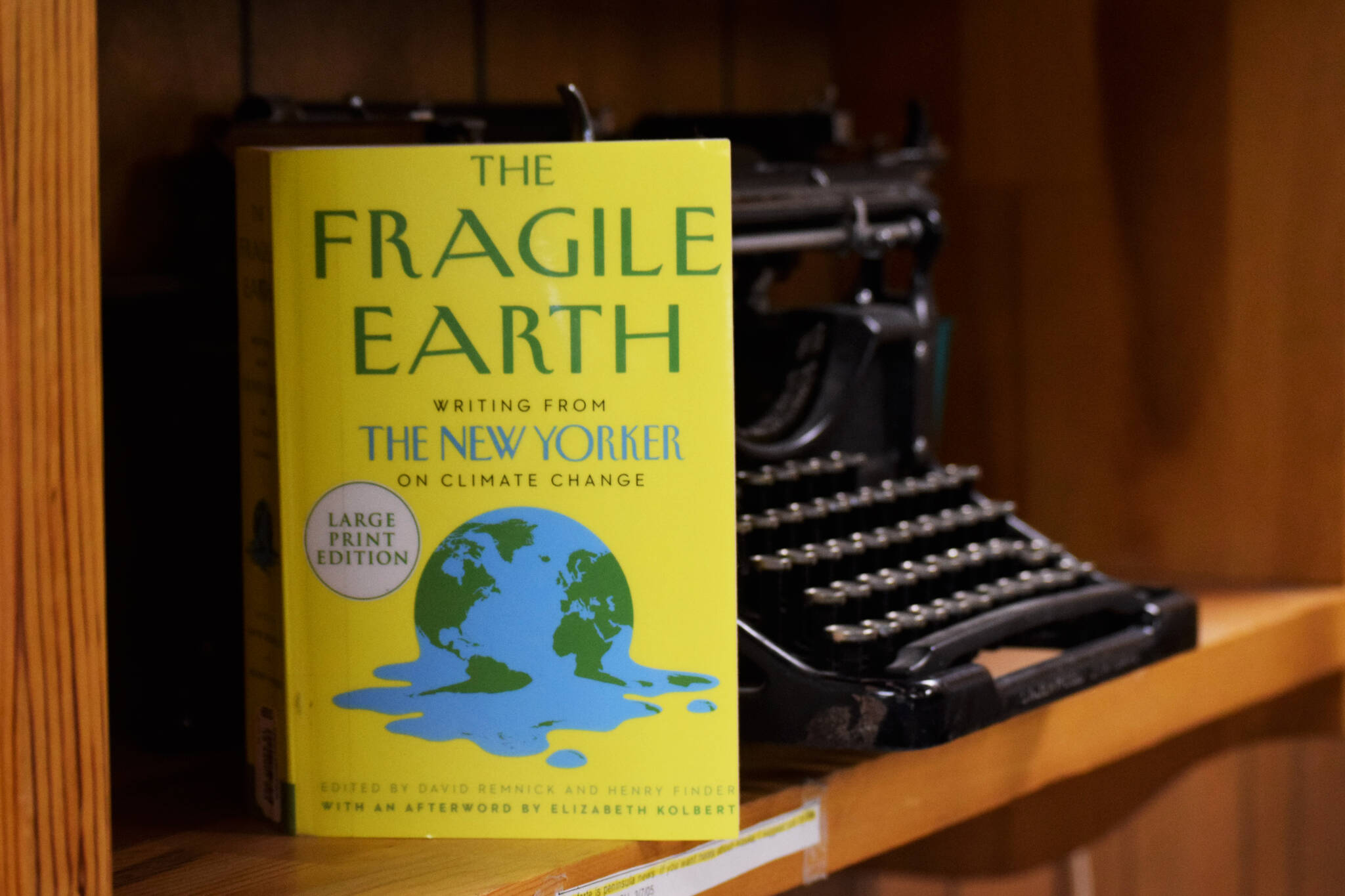Shortly after Earth Day this year, I purchased a book that had an illustration of a melting planet on the front.
“The Fragile Earth” is a collection of essays about climate change that have been previously published in The New Yorker. The first in the collection is Bill McKibben’s 1989 “Reflections: The End of Nature,” in which he offers foundational knowledge upon which discussions about climate change rest interwoven with his own thoughts.
It’s sometimes said that you shouldn’t judge a book by its cover, but let’s face it, some are more attractive than others. “The Fragile Earth” cover depicts a cartoon planet Earth melting on a bright yellow background — that succeeded in attracting me. The volume contains 21 essays across three parts. Part I features a 2016 essay by the Kenai Peninsula’s own Tom Kizzia about whale hunters in Alaska. Others dive into how climate models work and the effect of carbon emissions on oceans.
Among the foundational knowledge McKibben shares, for example, is the process through which the climate is being changed: the harvest of fossilized remains of aquatic algae, carbon dioxide’s ability to capture solar infrared radiation that would otherwise go back to space, the fact that methane is more than 20 times as efficient at warming the planet as carbon dioxide.
What’s notable is how familiar many of McKibben’s points sound despite being written more than 30 years ago. Speaking for myself, it seems like people have been talking about climate change for my entire life. I can remember when my childhood neighbors replaced their front lawns with succulents to save water, getting a recycling prize during a Girl Scouts jamboree and giving a speech in high school about hydroelectric dams.
Climate change was always presented as something that was happening right now and as something I could help mitigate.
In his essay about the end of nature, McKibben examines the implications of climate change on warmer temperatures and hotter days, of rising sea levels on coastal and non-coastal communities alike and the way those impacts would change the United States’ agriculture.
There are a lot of natural processes that put more carbon and methane into the atmosphere, McKibben explains. Trees contain a lot of carbon dioxide that is released when they’re burned, for example, and termites are thought to be responsible for between 1% and 2% of global methane missions.
The problem is all of the ways humans add to those natural emissions, such as by burning fossil fuels.
It’s easy to feel helpless and hopeless, in my experience, when tasked with saving the literal planet. I sometimes think climate change, though, is too often presented as an abstract problem future generations will face.
I feel like I’m staring it in the face every day; in the form of a particularly severe spruce bark beetle outbreak that was foreseen by scientists in the ‘90s, by the failure of infrastructure in Texas to keep people alive during particularly severe cold weather and by the opening of emergency “cool down” shelters in the Pacific Northwest during particularly severe heat waves.
Like a lot of contemporary climate voices, McKibben arrives at the conclusion that what needs to change is not how humans mold nature to accommodate their whims, but rather how humans should change their behavior for the sake of the planet.
“We live at the end of nature, the instant when the essential character of the world is changing,” McKibben writes. “If our way of life is ending nature, it is not radical to talk about transforming our way of life.”
“The Fragile Earth” was published in 2020 by The New Yorker.
Ashlyn O’Hara can be reached at ashlyn.ohara@peninsulaclarion.com.
Off the Shelf is a bimonthly literature column written by the staff of The Peninsula Clarion that features reviews and recommendations of books and other texts through a contemporary lens.

